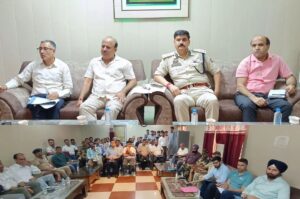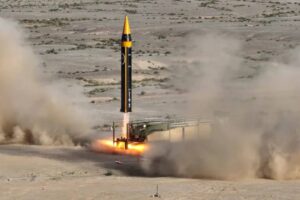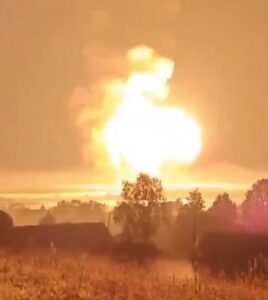Restoration of Statehood in Jammu and Kashmir: Potential Outcomes and Implications
Samba Times Editorial

The recent meeting between Jammu and Kashmir’s newly elected Chief Minister Omar Abdullah and Union Home Minister Amit Shah has sparked discussions about the potential restoration of statehood to the region. Abdullah, during his visit to New Delhi on October 23, emphasized the need for early restoration of statehood—an issue that has been at the forefront of political discourse since the abrogation of Article 370 and the reorganization of J&K into a Union Territory in 2019.
This meeting, along with Abdullah’s decisive actions during his first week in office, raises important questions about the potential outcomes of statehood restoration and its implications for Jammu and Kashmir.—
Political Stability and Governance
The reinstatement of statehood could bring greater political stability to the region by empowering local representatives with more administrative control. Under the current Union Territory arrangement, key portfolios, including law and order, remain under the jurisdiction of the Union Home Ministry. Restoration of statehood would shift these powers back to the local government, allowing it to address regional challenges more effectively and independently. A democratically elected state government would also help bridge the trust deficit between the residents of J&K and the central government, offering a sense of political ownership to the people. It could pave the way for the revival of institutions weakened by prolonged central control and signal a return to normalcy.—
Impact on Security and Law Enforcement
The ongoing security concerns, highlighted by the recent terror attack in Ganderbal that claimed seven lives, remain a significant challenge. While restoring statehood would provide local authorities greater autonomy, it could also mean increased accountability in handling security issues. The delicate balance between empowering the regional government and ensuring effective anti-terror operations would be critical in shaping the future law-and-order framework in the region. If the state police force comes back under the purview of the elected government, closer coordination with local stakeholders might improve responsiveness to security challenges. However, it would require a well-defined operational framework between the state and central forces to maintain a seamless approach to counter-terrorism.—
Constitutional Rights and Regional Identity
A key motivation behind the demand for statehood is the reinstatement of constitutional rights and the safeguarding of Jammu and Kashmir’s unique regional identity. Many residents and political leaders believe that the Union Territory status diluted their political autonomy and cultural identity. The resolution passed by Abdullah’s cabinet highlihgts the need to restore statehood in its original form to address these concerns. Restoration of statehood could also provide renewed guarantees of land ownership and employment rights, areas where locals fear dilution since the abrogation of Article 370. The revival of such protections would be crucial in reassuring residents about the safeguarding of their socio-economic interests.—
Boost to Economy and Regional Development
A stable political environment resulting from statehood restoration would likely encourage more investment and development projects in the region. With the state government regaining full control over policy-making, it could tailor development strategies to local needs, boosting tourism, agriculture, and infrastructure. This autonomy could also enable better management of funds allocated by the central government. Statehood would provide the elected government with more flexibility in implementing welfare programs and promoting entrepreneurship, especially among the youth. Such measures are vital to addressing unemployment and mitigating socio-economic grievances that have fueled discontent in the past.—
Challenges and Road Ahead
Despite these potential benefits, challenges remain. The central government may adopt a cautious approach to restoring statehood, ensuring that the transition does not compromise national security or derail ongoing development initiatives. Any change in status will require a nuanced political strategy, balancing the aspirations of the people of Jammu and Kashmir with national interests.
Omar Abdullah’s meeting with Prime Minister Narendra Modi, expected soon, could be a defining moment in this process. If the central leadership signals a willingness to restore statehood, it could initiate a healing process, bringing closure to years of political uncertainty. However, the extent of autonomy granted and the timeline for the transition will be crucial factors in determining how effectively this step fosters peace and development in the region.
Conclusion
The potential restoration of statehood to Jammu and Kashmir is not just a political demand but a step toward restoring trust, governance, and regional identity. While it offers opportunities for growth and reconciliation, the process will need careful planning and collaboration between the state and central governments. If successful, it could mark a new beginning for Jammu and Kashmir, setting the stage for a more inclusive and prosperous future. However, the central government’s stance on the issue will ultimately determine the outcome and the extent to which the aspirations of the region’s residents are fulfilled.
Rahul Sambyal ✍️
Exe Editor Samba Times





